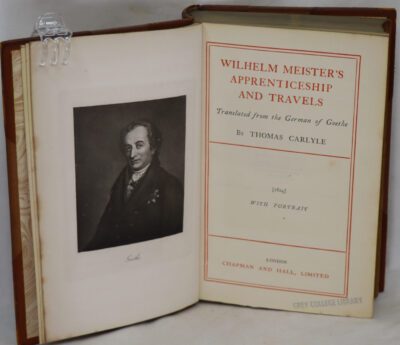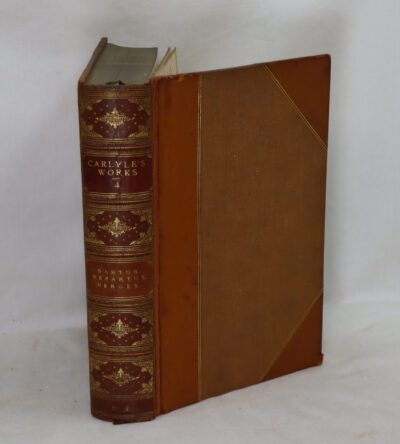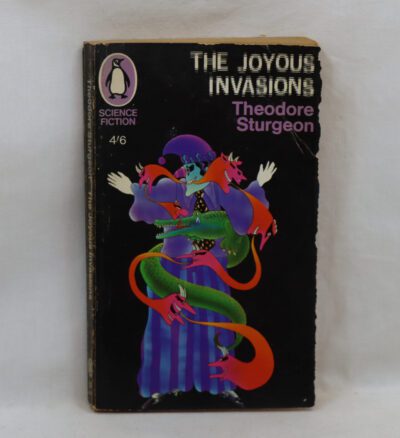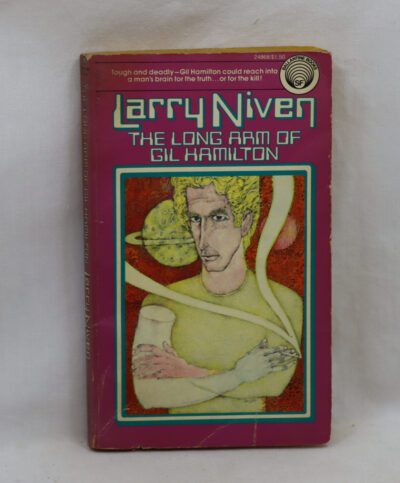The Bedroom Philosophers.
By D A F de Sade
Printed: 1965
Publisher: The Olympia Press. Paris
| Dimensions | 11 × 18 × 1 cm |
|---|---|
| Language |
Language: English
Size (cminches): 11 x 18 x 1
Condition: Very good (See explanation of ratings)
Item information
Description
Paperback. Green cover with black title.
We provide an in-depth photographic presentation of this item to stimulate your feeling and touch. More traditional book descriptions are immediately available
Warning: This book was part of the erotic library gathered by the famous Cambridge Don, computer scientist, food and wine connoisseur, Jack Arnold LANG, along with medical friends and family involved in Freudian research. Sexual instincts or drives have deeply hidden roots in the unconscious mind. Instincts act by giving vitality and enthusiasm to the mind through meaning and purpose. The range of instincts is in great numbers. Freud expressed them in two categories. One is Eros, the self-preserving life instinct containing all erotic pleasures. While Eros is used for basic survival, the living instinct alone cannot explain all behavior, according to Freud. In contrast, Thanatos is the death instinct. It is full of self-destruction of sexual energy and our unconscious desire to die. The main part of human behavior and actions is tied back to sexual drives. Since birth, the existence of sexual drives can be recognized as one of the most important incentives of life. The enclosed book was part of this research. A photograph is enclosed, should you seek further details please contact Martin Frost on martin.frost@gmail.com
Foremost amongst erotic books collected by Jack Arnold Lang are those published in France by the Olympia Press. The Olympia Press was a Paris-based publisher, launched in 1953 by Maurice Girodias as a rebranded version of the Obelisk Press he inherited from his father Jack Kahane. It published a mix of erotic fiction and avant-garde literary fiction, and is best known for issuing the first printed edition of Vladimir Nabokov’s Lolita.
In its heyday during the mid-fifties Olympia Press specialized in books which could not be published (without legal action) in the English-speaking world. Early on, Girodias relied on the permissive attitudes of the French to publish sexually explicit books in both French and English. In the late 1950s,the French authorities began to ban and seize the press’s books.
A total of 94 Olympia Press publications were promoted and packaged as “Traveller’s Companion” books, usually with simple text-only covers, and each edition in the series was numbered. The “Ophelia Press” line of erotica was far larger, using the same design, but pink covers instead of green.
Olympia Press was the first publisher willing to print William S. Burroughs’s avant-garde, sexually explicit Naked Lunch, which soon became famous. Other notable works included J. P. Donleavy’s The Ginger Man; Samuel Beckett’s French trilogy Molloy, Malone Dies, and The Unnamable; Henry Miller’s trilogy The Rosy Crucifixion, consisting of Sexus, Nexus and Plexus; A Tale of Satisfied Desire by Georges Bataille; Story of O by Pauline Réage; Terry Southern and Mason Hoffenberg’s Candy; Alex Austin’s The Blue Guitar and Eleanore; and a critical book on Scientology, Inside Scientology/Dianetics by Robert Kaufman. The South African poet Sinclair Beiles was an editor at the publisher. Other authors included Alexander Trocchi, Iris Owens (Harriet Daimler) and John Stevenson (Marcus Van Heller).
Girodias had troubled dealings with his authors including copyright issues. Nabokov was dissatisfied with the copyediting, assignment of copyright and the press’s literary reputation. The press engaged in a long-running dispute over the rights to The Ginger Man ended with Donleavy’s wife Mary buying out Girodias at what was intended to be a closed auction. Forced to leave France in 1963, Girodias briefly reestablished Olympia Press in New York in the 1960s, and in London in the early 1970s.
Grove Press in the U.S. would later print The Olympia Reader, a best-selling anthology containing material from some of Olympia’s most popular works, including material by Burroughs, Miller, Trocchi and others. Another well-known collection was The Best of Olympia, first published by the Olympia Press in 1963 and reprinted by New English Library in 1966.
Other incarnations of the company, some with Girodias’ support, emerged in Germany, Italy, and the United Kingdom. Olympia Press has been re-established and is currently operating out of Washington, London, and Frankfurt.
Soft cover. Condition: Very Good. No Jacket. 1st Edition. 1965 The Olympia Press Paris paperback Very good+ clean tight copy. Number 49 in the Traveller’s Companion Series.
Philosophy in the Boudoir (French: La philosophie dans le boudoir), often mistranslated as Philosophy in the Bedroom, is a 1795 book by the Marquis de Sade written in the form of a dramatic dialogue. Set in a boudoir the two lead characters make the argument that the only moral system that reinforces the recent political revolution is libertinism, and that if the people of France fail to adopt the libertine philosophy, France will be destined to return to a monarchic state. In the chapter titled “Fifth Dialogue”, there is a lengthy section where the character Chevalier reads a philosophical pamphlet titled “Frenchmen, Some More Effort If You Wish to Become Republicans”. This represents Sade’s philosophy on religion and morality, a philosophy Sade hopes the citizens of France will embrace and codify into the laws of their new republican government. Throughout the text, Sade makes the argument that one must embrace atheism, reject society’s beliefs about pleasure and pain, and contends that if any crime is committed while seeking pleasure, it cannot be condemned.
Donatien Alphonse François, Marquis de Sade (2 June 1740 – 2 December 1814) was a French writer, libertine, political activist, and nobleman best known for his libertine novels and imprisonment for sex crimes, blasphemy, and pornography. His works include novels, short stories, plays, dialogues, and political tracts. Some of these were published under his own name during his lifetime, but most appeared anonymously or posthumously.
Born into a noble family dating from the 13th century, Sade served as an officer in the Seven Years’ War before a series of sex scandals led to his detention in various prisons and insane asylums for most of his adult life. During his first extended imprisonment from 1777 to 1790, he wrote a series of novels and other works, some of which his wife smuggled out of prison. On his release during the French Revolution, he pursued a literary career and became politically active, first as a constitutional monarchist then as a radical republican. During the Reign of Terror, he was imprisoned for moderatism and narrowly escaped the guillotine. He was re-arrested in 1801 for his pornographic novels and was eventually incarcerated in the Charenton insane asylum, where he died in 1814.
His major works include The 120 Days of Sodom, Justine, Juliette and Philosophy in the Bedroom, which combine graphic descriptions of sex acts, rape, torture, murder, and child abuse with discourses on religion, politics, sexuality, and philosophy. The word sadism derives from his fictional characters who take pleasure in inflicting pain on others.
There is debate over the extent to which Sade’s behavior was criminal and sadistic. Peter Marshall states that Sade’s “known behaviour (which includes only the beating of a housemaid and an orgy with several prostitutes) departs greatly from the clinical picture of active sadism”. Andrea Dworkin, however, argues that the issue is whether one believes Sade or the women who accused him of sexual assault.
Interest in his work increased in the 20th century, with various authors considering him a precursor to Friedrich Nietzsche, Sigmund Freud, surrealism, totalitarianism, and anarchism. Many prominent intellectuals, including Angela Carter, Simone de Beauvoir, and Roland Barthes, published studies of his work, and numerous biographies have also been produced. Cultural depictions of his life and work include the play Marat/Sade by Peter Weiss and the film Salò, or the 120 Days of Sodom by Pier Paolo Pasolini. Dworkin and Roger Shattuck have criticized the rehabilitation of Sade’s reputation, arguing that it promotes violent pornography likely to cause harm to women, the young and “unformed minds”.
Want to know more about this item?
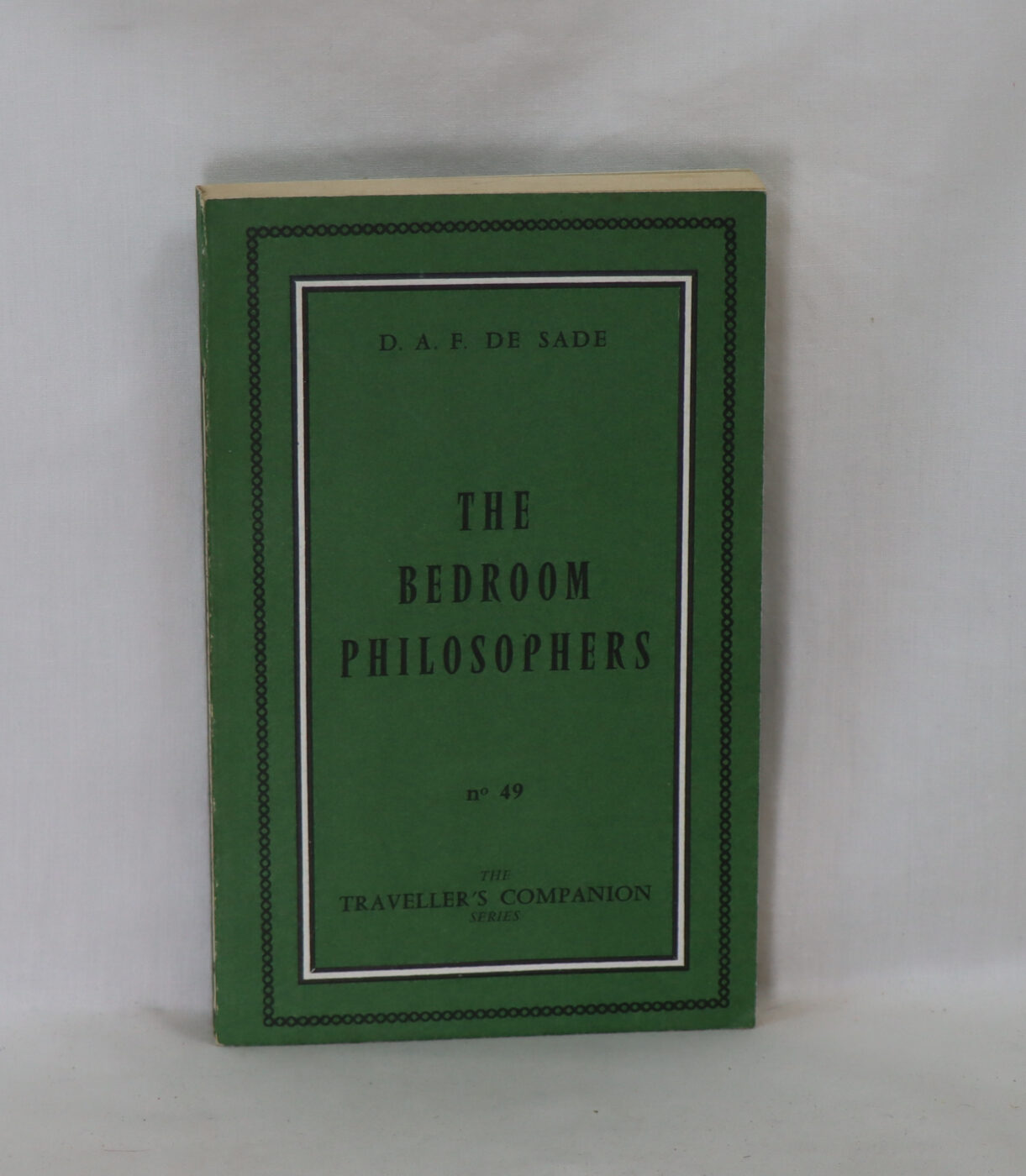
Related products
Share this Page with a friend


